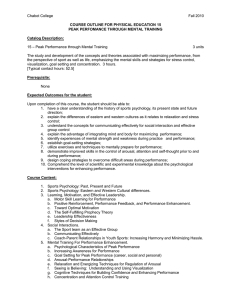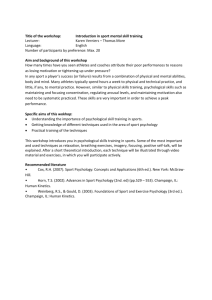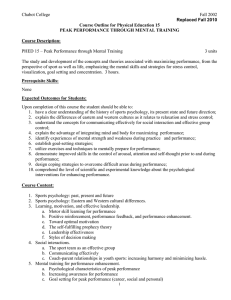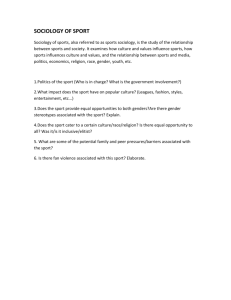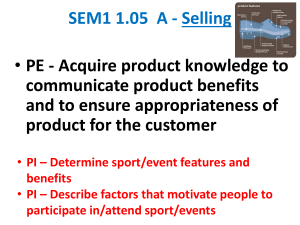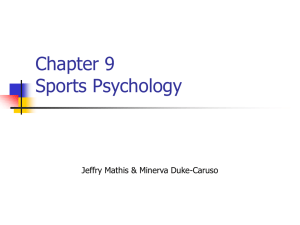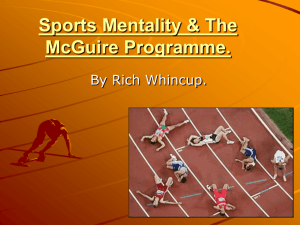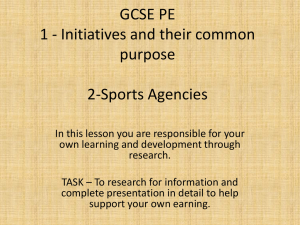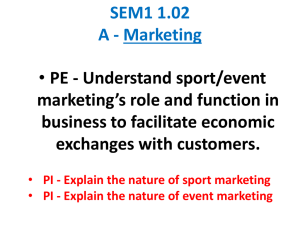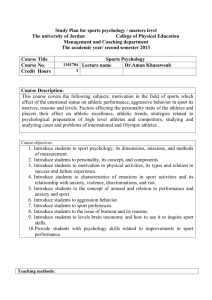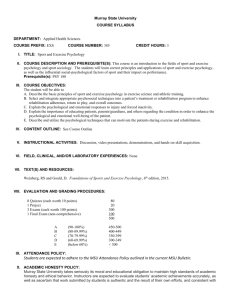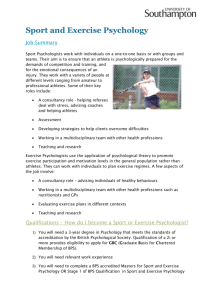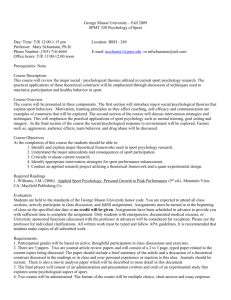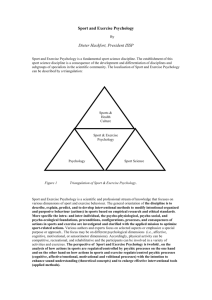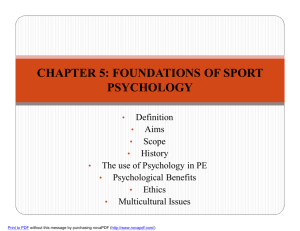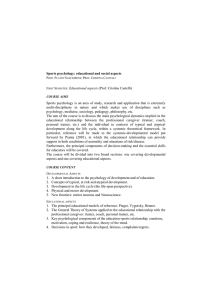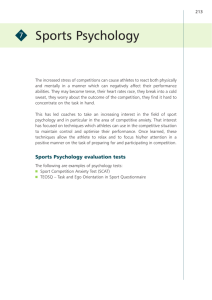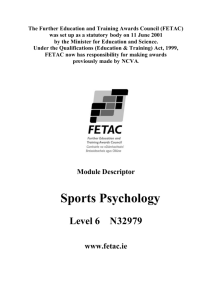Introduction to Psychology KIN 223
advertisement
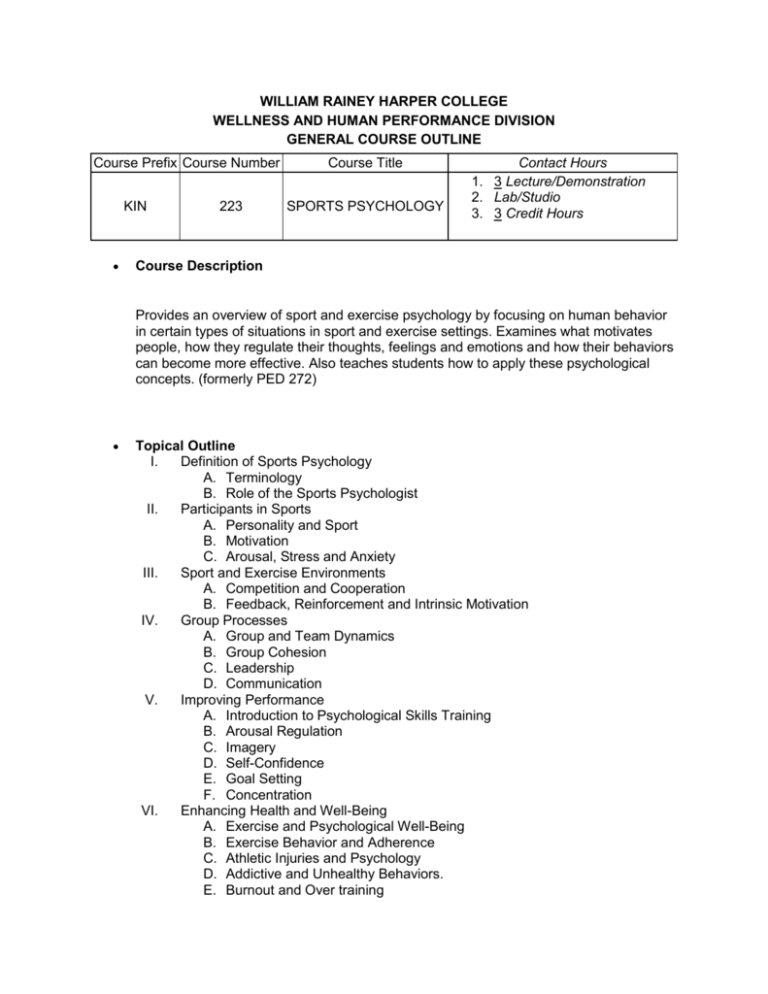
WILLIAM RAINEY HARPER COLLEGE WELLNESS AND HUMAN PERFORMANCE DIVISION GENERAL COURSE OUTLINE Course Prefix Course Number KIN 223 Course Title SPORTS PSYCHOLOGY Contact Hours 1. 3 Lecture/Demonstration 2. Lab/Studio 3. 3 Credit Hours Course Description Provides an overview of sport and exercise psychology by focusing on human behavior in certain types of situations in sport and exercise settings. Examines what motivates people, how they regulate their thoughts, feelings and emotions and how their behaviors can become more effective. Also teaches students how to apply these psychological concepts. (formerly PED 272) Topical Outline I. Definition of Sports Psychology A. Terminology B. Role of the Sports Psychologist II. Participants in Sports A. Personality and Sport B. Motivation C. Arousal, Stress and Anxiety III. Sport and Exercise Environments A. Competition and Cooperation B. Feedback, Reinforcement and Intrinsic Motivation IV. Group Processes A. Group and Team Dynamics B. Group Cohesion C. Leadership D. Communication V. Improving Performance A. Introduction to Psychological Skills Training B. Arousal Regulation C. Imagery D. Self-Confidence E. Goal Setting F. Concentration VI. Enhancing Health and Well-Being A. Exercise and Psychological Well-Being B. Exercise Behavior and Adherence C. Athletic Injuries and Psychology D. Addictive and Unhealthy Behaviors. E. Burnout and Over training VII. Facilitating Psychological Growth and Development A. Children and Sport Psychology B. Aggression in Sport C. Character Development and Good Sportsmanship Method of Presentation 1. Lecture 2. Class Discussion 3. Other: a. Group participation b. Audio-visual aids Student Outcomes (The student should) 0. define Sports Psychology and explain the role of the Sports Psychologist. 1. explain arousal, stress and anxiety as it relates to performance. 2. explain the difference between competition and cooperation. 3. discuss the importance of feedback, reinforcement and intrinsic motivation. 4. discuss group and team dynamics, group cohesion, leadership and the importance of communication. 5. discuss a variety of psychological skills training. 6. explain exercise behavior. 7. explain the different athletic injuries which occur in sport. 8. explain addictive and unhealthy behaviors. 9. discuss burn out and over training in sport participation. 10. discuss the issues of children and sports psychology. 11. discuss the issue of aggression in sport and the development of character development. Method of Evaluation . Typical classroom assessment techniques X Projects X Class participation X Objective tests Studio/Lab performance X Final exam Portfolios X Essays/Term papers Oral examination Research report A. Course content learning outcomes Quizzes Group participation Case study assignments X Homework X Midterm Exam X Exams B. Additional assessment information (optional). 1. Attendance Textbook Required 0. Weinberg, Robert S. and Gould, Daniel. Foundation of Sports and Exercise Psychology. 5th Edition. Human Kinetics, 2011 g. Supplementary materials None h. Software None Prepared by: Pardess Mitchell Fall 2013 CID: 3743
